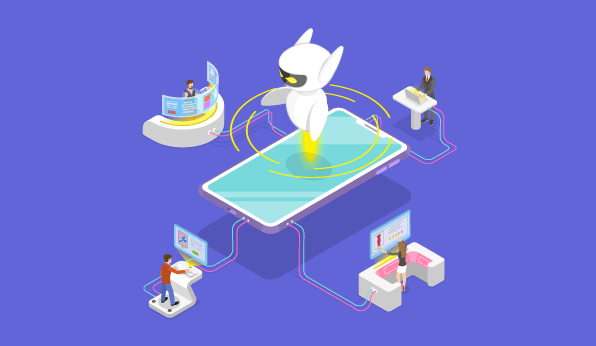Let’s accept it; advanced personalization is the only way to stay ahead in your marketing game! But sadly, only about 9 percent of marketers have been able to implement hyper-personalization strategy to improve their 1-to-1 customer experience and witness a 5 to 15% surge in their ROI. The rest of them are either just talking about it or struggling to find the right Omni-channel personalization tool.
Rich Relevance emerged as a popular Omni-channel personalization tool in Martech space. This San Francisco-based company provides personalization technology to large retail brands to help them individualize customer experience across the website, mobile App and in store. Rich Relevance offers an array of features to make your own rules and setting to truly personalize your site or App for every user. However, the tool isn’t intuitive (or easy to use) and takes a long time to integrate, which is a big decisive factor for marketers. The reporting level also needs to be at par when compared with other tools.
So if you are looking for some Rich Relevance alternatives or the best Omni-channel AI-powered personalization tool in general, here are some of the most sought after options to look out for.
1. Smartech
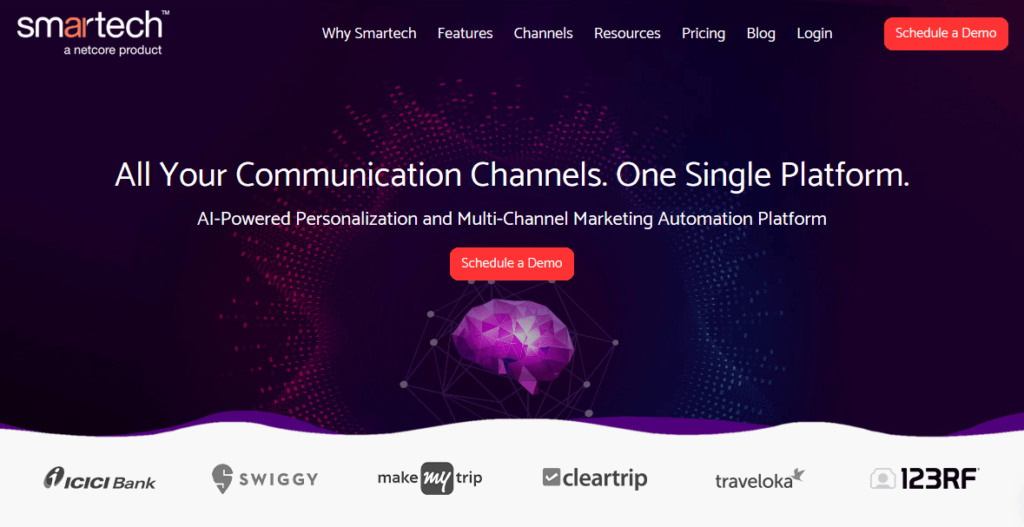
Netcore Smartech is among the global leaders in the Martech space. This AI-driven Omni-channel personalization tool has empowered more than 5000 brands to implement advanced personalization strategies across all digital touchpoints to create 1-to1 customers experience. This easy-to-implement data-driven and AI-powered tool can
- Create a unique viewing experience for each customer – It leverages real-time customer eye-ball data and dynamically personalize the content on your web and App pages based users buying behaviour, add to cart choices, device, location, search history, and so on.
- Individualize buying and navigational journey – Help customers make informed choices by dynamically changing recommendations on product listing pages and product display pages.
- Create individualized pages such as “Recommended for you” – This can be a personalized home page or a separate page where high-intent items can be showcased, which increases engagement and conversions.
And that’s just about its features. Its seamless integration and quick results are something that makes it a preferred choice for marketers. The below stats will help you understand what makes Smartech stand out
- With right tech stack, integration can be done within 15 minutes
- Show results in less than 5 weeks
- 20 to 25% better behaviour prediction
- 10 to 15% boost in marketing ROI
- 8 to 13% increase in conversion
Above all, Smartech offers weeks free POC (at this point in time) for you to test the waters and make an informed decision.
2. Qubit:
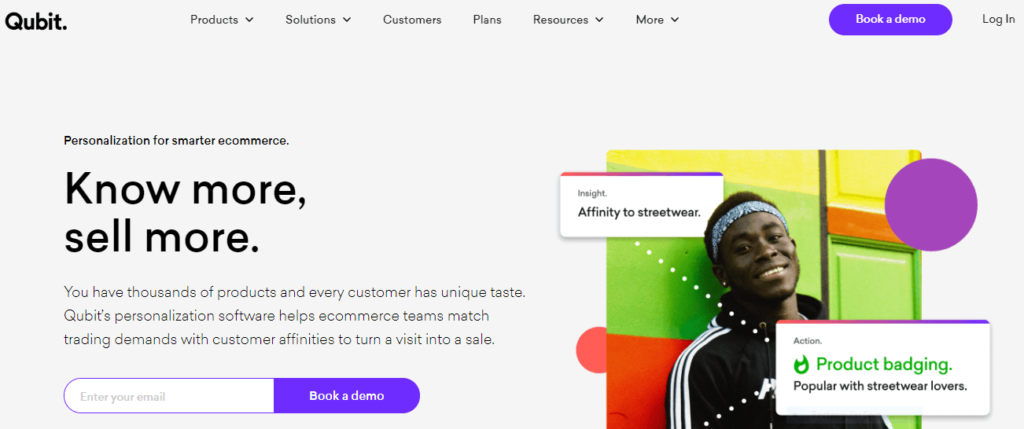
Qubit is a UK-based personalization platform that positions itself as software that promises context, relevance, and value to your users. It is one of the significant leaders in advance personalization space and helps E-commerce brands deliver 1-to-1 customer experience at scale.
Pros:
- Clean, responsive and smart UI makes rigorous testing possible
- Easy to use templates frees up time for development and tech team
- Apart from Ecommerce success stories, they also have compelling use cases of other online businesses
Cons:
- Integration can take a bit of time, especially with existing analytics tools. A lot of tech intervention is required
- Reporting and data representation is not at par compared to other tools
- Not very appealing for SMBs for the tool is expensive to implement
- Cant set up unique variables for customers which can have a negative impact on individual customer journey affecting conversion goals
3. Adobe Target
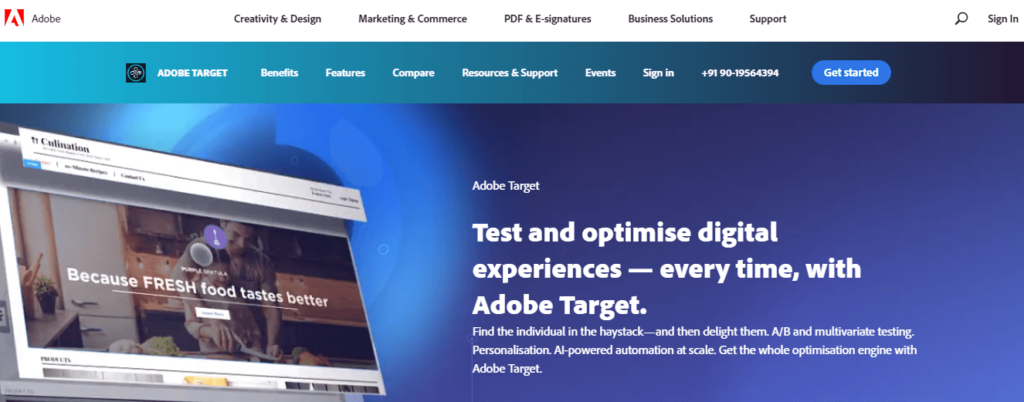
Adobe Target is among market leaders when it comes to choosing AI-powered Personalization and Omni-channel marketing automation solution. It delivers Adobe Experience Cloud Solution to an array of enterprise clients to hyper-personalize their user experience at scale, but the software has its advantages and disadvantages
Pros
- Its AB testing functionalities are promising
- Strong user flow, page layout and predictive model
- Laser-focused customer-level targeting and personalization
Cons:
- UI is too complicated, especially for someone who is not accustomed to Adobe products
- One needs more clarity on choosing the best reporting tool – Adobe Analytics or Adobe Target
- Not a cost-effective solution to implement
- Most suitable for products within Adobe Marketing Cloud Suite
- Lacks KPI-focused approach
- A lot of technical assistance required and there is limited customer support
4. Certona
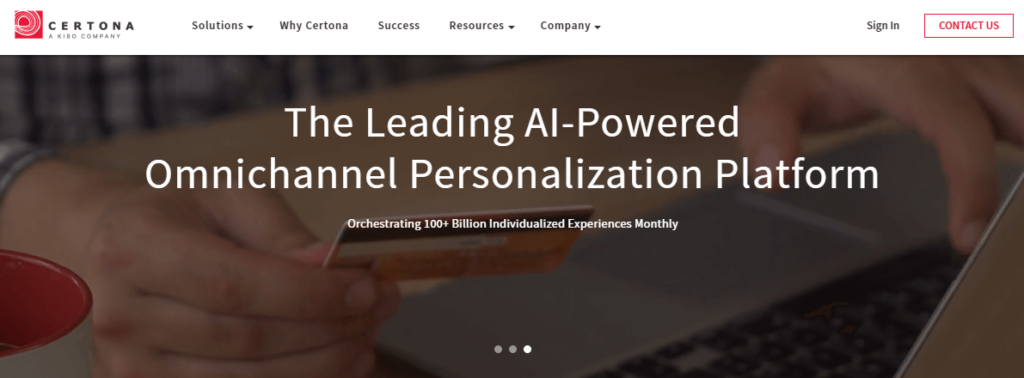
Certona is another promising tool in the Martech space, primarily empowering E-commerce brands to deliver a unique experience to its customers by leveraging AI-powered personalization and Omni-channel marketing.
It helps send individualized content and contextual messaging with an exquisite combination of machine learning and Predictive Analytics.
Pros:
- Great customer support
- Make powerful individualized recommendations
- AB testing and optimization experiments are seamless compared to other primary personalization tools
Cons
- The high price makes it less attractive for SMBs
- The conversion-driven results can take around 10 to 12 weeks
- Integration requires above-average tech intervention which may inflate your operational cost
5. Optimizely
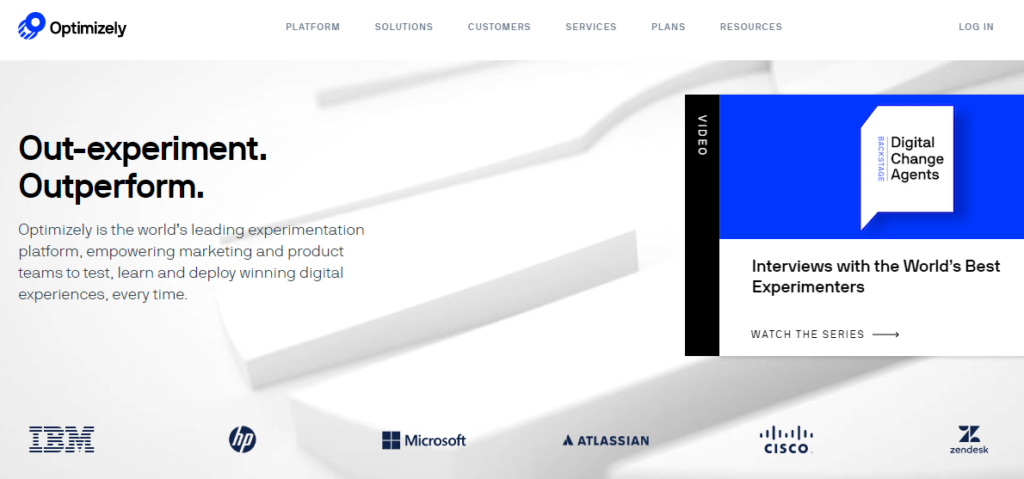
Optimizely positions itself as a progressive delivery and experimentation platform in Martech space. It is one of the prominent personalization-focused and Omni-channel marketing tool, helping brands deliver individualized offers, recommendations, contextually targeted messages to its customers at scale.
Pros:
- Performance analytics and reporting is excellent compared to other competitors
- Intuitive and easy-to-navigate UI with excellent AB testing functionality
- Efficient customer support solves queries in time
Cons:
- Limited visual data to evaluate the performance
- Primarily focus on enterprise clients
- Flickering prices, making it less appealing for SMBs.
- Can produce underwhelming results when personalizing a large number of pages across the website at scale
Conclusion
Honestly, there is no such thing as a perfect tool. However, being a marketing expert, you can evaluate your personalization tool based on the following points.
- How much time your Omni-channel personalization tool takes to show conversion driven results
- Whether the UI is intuitive and offers flexibility for optimizations and experiments
- The level of tech intervention required
- Integration time required
- Implementation cost
- If it has a timely and effect support team
- If seamless integration with your existing tech stack is possible
- Elaborative reporting and performance analytics
- Whether it has a KPI-driven approach
These are some of the significant factors that can help you make an informed decision when choosing your Omni-channel personalization tool.







